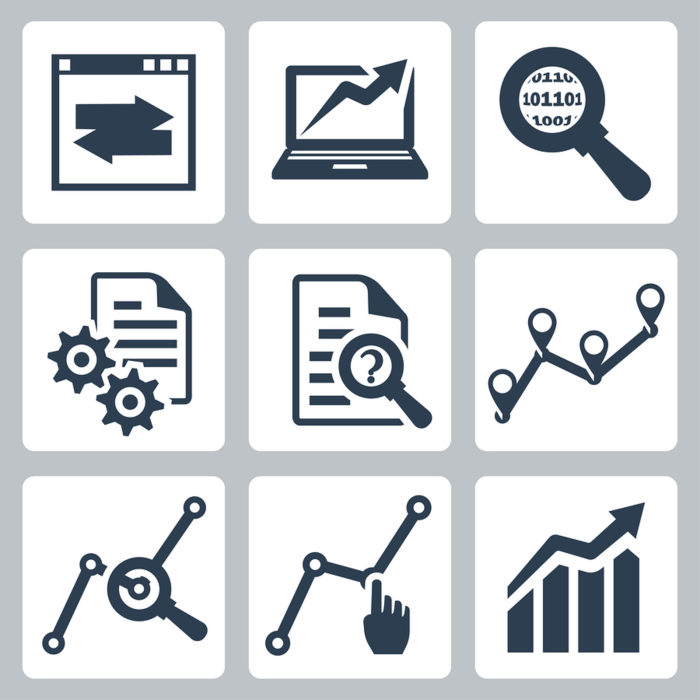OK, I’ll admit it. I’m getting addicted to Twitter. Not because of an incessant need to post another all-too-common humblebrag. But it’s because of @ConradHackett, better known as Conrad Hackett, a noted demographer for the Pew Research Center. Hackett constantly feeds my insatiable need for data with seemingly endless posts about—well, everything.
Here’s a post about the rise and (thankfully) precipitous fall of cigarette smoking in the U.S.
The rise and fall of smoking in the U.S. pic.twitter.com/80tzXq8cYR
— Conrad Hackett (@conradhackett) September 7, 2014
And as a journalist, I love this one. Hackett’s post highlights America’s most literate cities. (Apparently, I don’t live in one of them. But congrats to those who made the list.)
America’s most literate cities
1 DC
2 Seattle
3 M-polis
4 Atlanta
5 P-burgh
6 Denver
7 St Paul
8 Boston
9 St Ls
10 SF
http://t.co/qB7U82a9JD
— Conrad Hackett (@conradhackett) September 7, 2014
In this post, Hackett underscores the telling, or perhaps jarring, fact that increasingly more Americans are shying away from the idea of marriage.
20% of Americans 25+ have never married. Only half (53%) of them want to ever marry.
http://t.co/debFGdxQuu pic.twitter.com/LvEPn87e43
— Conrad Hackett (@conradhackett) September 26, 2014
All interesting data. Hackett divulges seemingly unending facts through his posts: countries with the most PhD’s earned by women, top cities with the most billionaires, stats on worldwide belief in God. You name it.
These datasets—really any dataset—can be a potential resource for marketers. Just last week, Direct Marketing News highlighted the City of San Antonio for using first-party Facebook data to find and target young moms in the Southwest looking for a quick getaway. Earlier this year, DMN featured Red Roof Inn for using weather and flight cancellation datasets to drive room sales.
Big Data isn’t automatically useful. With the right plan and tools, however, marketers can turn raw data into actionable insight. And when broken down into something meaningful, data can help solve challenges, inform campaigns, and enable marketers to place their creative in front of the right audience. With that will likely come better customer engagement, retention, and loyalty.
For inspiration, I’ve listed some of my favorite open datasets—information that’s free and easily accessible on the Web. Some have an obvious connection to the betterment of a marketing strategy. Others may take a little more time and creativity to make use of. But in any case, I thought I’d share some of the data often perused and used.
(Continue on Page 2)
NYC Open Data
The city of New York has a robust open data initiative meant to encourage innovation and improve the city’s wellbeing. You can find everything from datasets used to help fight fires to information that’ll reveal the nearest subway entrance. Sounds like the makings of a great marketing app to me.
Google Trends
This one’s an oldie but goodie. Hot searches on Google display what’s top of mind for people in the moment. This popular dataset is a great way for marketers to ride the current trends. For some time now, Google has made it easy to find and compare public data.
Pew Research Center
I can’t rave enough about all of the available data from this renowned, nonpartisan fact tank. The Pew Research Center provides a plethora of datasets on social trends, technology, world events, and politics.
Weather Service Data
A National Mosaic view of National Weather Service’s radar imagery allows users to interact with the display of data and customize the way that they look at weather info. The radar image can be layered with several sets of info, including topography maps, highways, state and county boundaries, and even weather warnings.
Yelp Academic Dataset
The online review platform provides all the data and reviews of 250 of the closest businesses near 30 universities. It’s great for students and faculty to explore.
Book a musician
I just threw this one in for kicks. The writers over at Pricenomics, who focus on data crawling, visualization and analysis, put together a fun list with the help of a decidedly anonymous Degy Entertainment employee. The data shows how much it would take to book your favorite band or music artist. Not surprisingly, Justin Bieber, Bruce Springsteen, and Justin Timberlake are not cheap—each reportedly costing more than a one million dollars.








